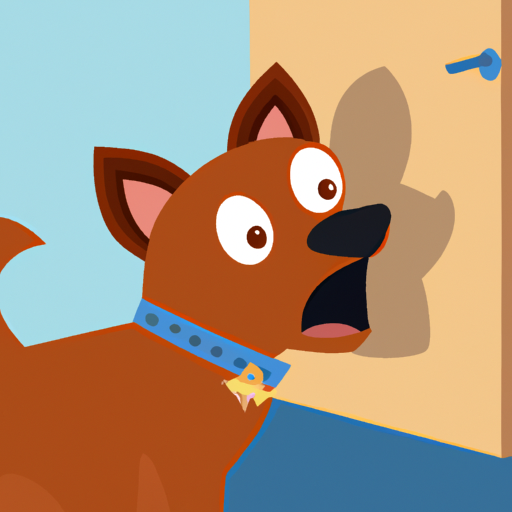Introduction
If you’ve ever left your dog alone and returned to noise complaints from your neighbors, you know how stressful dog barking can be. Dogs bark for numerous reasons, and understanding why your dog is barking when left alone is crucial to finding a solution. This guide will help you understand the possible reasons for your dog’s barking and provide solutions to help curb this behavior.
Understanding Why Dogs Bark
Dogs bark as a form of communication. However, when the barking becomes excessive, it could be a sign of a deeper issue.
- Separation Anxiety: Dogs are social animals and can develop separation anxiety when left alone. This can result in excessive barking, destructive behavior, and other signs of distress.
- Fear or Phobias: Dogs may bark due to fear or phobias of certain sounds, objects, or situations.
- Boredom or Loneliness: Dogs left alone for long periods can get bored or lonely, leading to excessive barking.
- Seeking Attention: Dogs may bark to get your attention or to express their need for food, play, or companionship.
Signs of Separation Anxiety
Understanding the signs of separation anxiety can help you address your dog’s excessive barking. Signs may include:
- Excessive barking or howling when left alone
- Destructive behavior, such as chewing on furniture
- Attempting to escape the house
- Pacing in a fixed pattern or circle
- Excessive drooling, panting, or salivating
Solutions for Excessive Barking
Once you understand why your dog is barking, you can implement solutions to help them feel more comfortable when left alone.
Training
Training is essential in managing excessive barking. Here are some training methods that can help:
- Desensitization: Gradually expose your dog to the triggers that cause them to bark, starting at a low intensity and slowly increasing it as your dog becomes more comfortable.
- Counter-Conditioning: Associate the triggers that cause your dog to bark with positive experiences, such as treats, toys, or praise.
- Quiet Command: Teach your dog a quiet command to stop barking on cue.
Medication
In severe cases of separation anxiety, medication may be necessary. Always consult with a veterinarian before starting any medication.
| Medication | Description |
|---|---|
| Clomipramine | An antidepressant used to treat separation anxiety in dogs. |
| Fluoxetine | A selective serotonin reuptake inhibitor (SSRI) used to treat anxiety and obsessive-compulsive behavior. |
Preventative Measures
To prevent excessive barking, try the following strategies:
- Keep your dog mentally and physically stimulated with toys and exercise.
- Maintain a consistent daily routine.
- Limit the amount of time your dog spends alone.
- Use background noise, like the TV or radio, to provide company for your dog when you’re not home.
FAQ
Why does my dog bark when I leave them alone?
Your dog could be barking due to separation anxiety, fear, boredom, or a need for attention. It’s important to identify the cause to find the right solution.
What can I do to reduce my dog’s barking when I’m not home?
Training methods such as desensitization and counter-conditioning can be effective. Keeping your dog stimulated, maintaining a routine, and limiting alone time can also help.
Is it normal for dogs to bark when left alone?
Some barking is normal, but excessive barking could indicate an underlying issue such as separation anxiety.
Should I use a bark collar on my dog?
Bark collars should be a last resort and used only under the guidance of a professional. They don’t address the underlying cause of the barking and can cause more harm than good.
When should I seek professional help for my dog’s barking?
If your dog’s barking is causing distress or disrupting your life, it’s time to seek professional help. A professional dog trainer or a veterinarian can provide guidance and solutions.
Remember, your dog’s barking is their way of communicating. Understanding the cause is the key to finding a solution. With patience and consistency, you can help your dog feel more comfortable when left alone, reducing their need to bark excessively.



